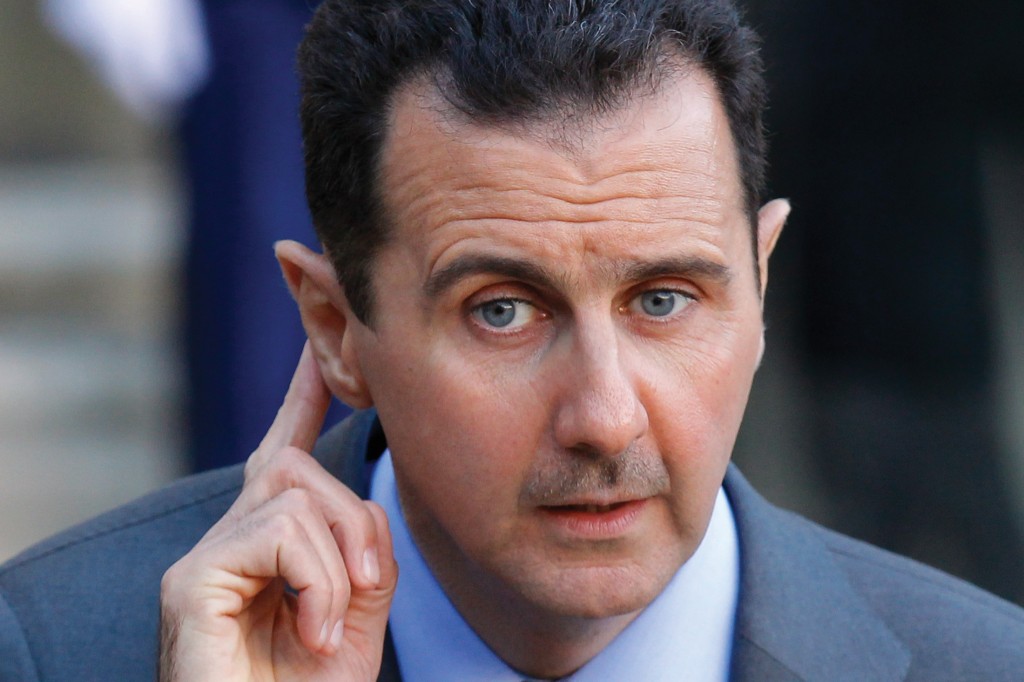No doubt any attempt you’ve made at engaging in the current events of today has been met with an onslaught of ominous statements about Syria. The problem in the Middle Eastern country has been perpetuated for decades but its contemporary relevance hits on the contentious issue of crimes against humanity. In order to keep you informed amid your hectic life, here’s a comprehensive, albeit abbreviated, guide to understanding what exactly is happening in Syria.
If you’re going to take away anything from this article, even if it’s to impress that certain somebody at the bar by employing that big ol’ brain of yours to show that you keep informed on worldly happenings, let it be this:
Syrian rebels and civilians alike–during a protracted attempt to abolish the tyrannical stranglehold imposed by their national government–hav
e been subjected to toxic chemical weapon strikes, the most recent of which culminated in the death of tens of thousands as the bipartisan debate to swoop in with aid wages on from the sidelines in Washington D.C.
During a press briefing Tuesday, White House Press Secretary Jay Carney announced that President Obama has yet to decide on the United States’s intention to intercede, though that could come as soon as Thursday. Carney continued: “The first step toward a military response in Syria would be the public release of a U.S. intelligence report on the August 21 event near Damascus that reportedly killed and wounded thousands.”
Wednesday, the United Nations envoy cited new evidence that further suggests Syria used chemical weapons against its own citizens. Global allies like Australia have stated their intentions to back the U.S. should the President decide to intervene.
UPDATE (5:36pm ET):
UK leader David Cameron loses preliminary vote on #Syria in stunning defeat for government – @AP
— Streetwise News Desk (@StreetwiseNews) August 29, 2013
Background
Since 1973, Syria and the Ba’athist political party have been under the leadership of the al-Assad political family with Hafez al-Assad becoming president in 1971. He died in 2000 passing the presidency along to his son Bashar.
From 1963 to 2011, Syria remained under emergency rule affording the government and security forces sweeping powers of arrest and detention, effectively quelling any rights to free assembly and free expression. During this time, government policies widened the socioeconomic hardship of rural poverty-ridden cities.
Women and ethnic minorities have also faced discrimination, most notably against the Syrian Kurds who have been systematically denied citizenship since the coup. Similarly, Iraqi Kurds were subjected to strikes of poisonous gas in 1988 under the Saddam Hussein administration drawing many comparisons to what’s recently taken place in Damascus.

Arab Spring
In December 2010, protests and unrest swept the Middle East prompting riots and civil wars that became known as the Arab Spring. Though each country had reasons behind its own respective demonstrations, the entire cause was united under the banner of ousting the expansive dictatorships.
Later in early 2011, the Syrian city of Daraa, a city plagued by social and economic animosity, became the first city as whole to rebel against its Ba’athist government.
Up to Speed
Syrians who have waged nationwide protests have also been subjected to mobilized responses by the government they’re attempting to disrupt. Growing to an estimated 40,000 strong, the Free Syrian Army took the battle to the Northern and mountainous border region of the country, prompting Assad to up the ante and escalate violence.
By March 2012, the death toll reached an estimated 10,000.
In April 2012 former Secretary-General of the United Nations Kofi Annan attempted to negotiate a cease fire between the two conflicting sides to no avail. Syrian armed forces continued their assault before the negotiations even occurred.
Chemical Weapons
The New York Times reported in April 2013 that Syria had used chemical weapons during offensives against the cities of Aleppo, Homs, and possibly Damascus. U.S. ally Israel lent credence to such, stating that Syria did employ the use of chemical weapons in Aleppo and Damascus during March 2013.
The White House responded to the claims by calling for verification from intelligence assessments, perhaps as a political safety net to defend from those who draw parallels to former President George W. Bush’s Iraqi campaign.
Further, the British and French governments announced that they had proof of Syria’s use of chemical weaponry through the testing of bodily fluids of victims subjected to it.
On August 21, it was suspected that Assad’s government continued its assault on the rebels using Sarin nerve gas. Upwards of 635 were killed with thousands incurring severe injuries. Videos uploaded to the internet of those affected showed victims convulsing, and gasping for air.
What’s Next?
On Monday, Secretary of State John Kerry hosted a press conference during which he condemned the Syrian government’s practices calling them a “moral obscenity” that utterly shocked the globe. The transcript of his statement is available here.
Secretary of Defense Chuck Hagel made it clear to the world that should he receive orders from the Commander in Chief, he and the United States military are “ready to go.”
“We have moved assets in place to be able to fulfill and comply with whatever option the president wishes to take,” Hagel told the BBC.
Meanwhile, French President François Hollande asserted to constituent French ambassadors that France is ready to “punish” those responsible for the suspected poison gas in the capital of Damascus last week, designating it a “heinous decision to gas innocents.”
Since June the U.S. has been providing the Syrian rebels with the appropriate arms to properly defend themselves. But many contest the United States must directly intervene. Russian Foreign Minister Sergei Lavrov reminded those listening that “Al-Qaeda was basically born from the Mujahedeen movement financed by the United States when the Soviets were in Afghanistan. Then al-Qaeda boomeranged.”
Russian President Vladimir Putin has vocally opposed joining either side; Russia is undertaking plans to remove its forces from naval station in Syria. In June Putin denied vehemently that Russia sent any aid to Syria.
Also in June, the United Nations estimated the death toll surpassed the 100,000 mark.

